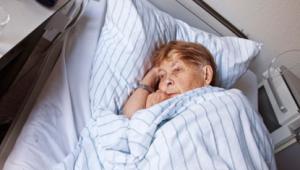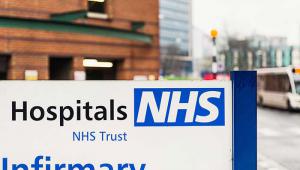Daily SitRep data recorded by NHS acute trusts for the week ending February 25 2018, showed that pressure on NHS services had reached new heights.
On February 20, the average general and acute bed occupancy rate peaked at 96.1%.
London North West healthcare NHS Trust experienced an entire week of general and acute bed occupancy at 100% between 19 and 25 February.
Deputy chief executive of NHS Providers Saffron Cordery noted that the figures relate to week before the recent cold snap. “But they show services running absolutely flat out, with no slack in the system to cope with what we are now experiencing,” she said.
“Bed occupancy was up to more than 95% – the highest so far this winter and well above recommended safety levels, even though there were over 20% more ‘escalation’ beds in place to deal with added winter pressures than at the same time last year.
“These difficulties are adding to pressure on other services, leading to delays for patients as they are handed over from ambulances to A&E.”
Dr Nick Scriven, president of the Society for Acute Medicine, said: “The severe winter weather is an added burden on top of the recent ‘usual’ winter and today and the next few days will particularly stretch trusts with staff struggling to get to work and ambulance trusts having immense problems getting patients to and from hospitals.
“The latest weekly performance figures provide stark reading with 18,000 patients in hospital for more than 21 days and bed occupancy still at 95%.
“There have been no words from the secretary of state regarding the NHS going the extra mile in this weather, yet we find ourselves in the midst of extreme conditions which have piled the pressure on our already-stretched hospitals.”
A Department of Health and Social Care spokesperson said: “The government supported the NHS this winter with an additional £437m of funding, and gave it top priority in the recent Budget with an extra £2.8bn allocated over the next two years.
“The NHS remains extremely busy but, despite the pressure, almost 3,000 more people were treated within four hours every single day in January compared to the same time last year.”











